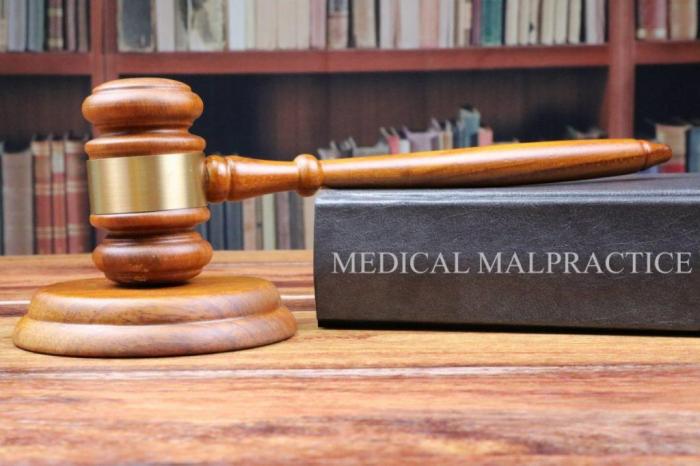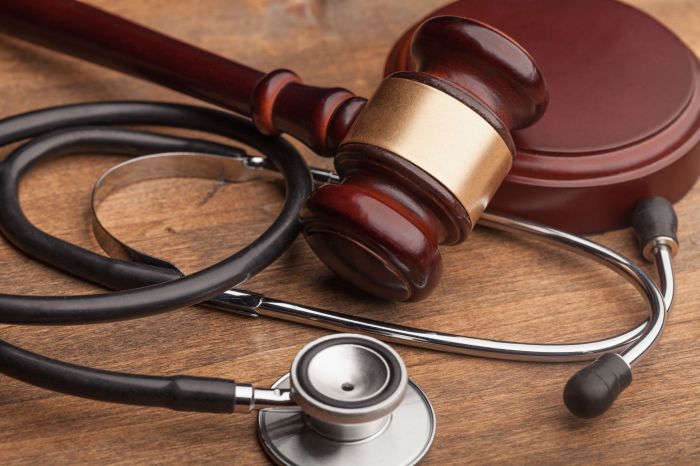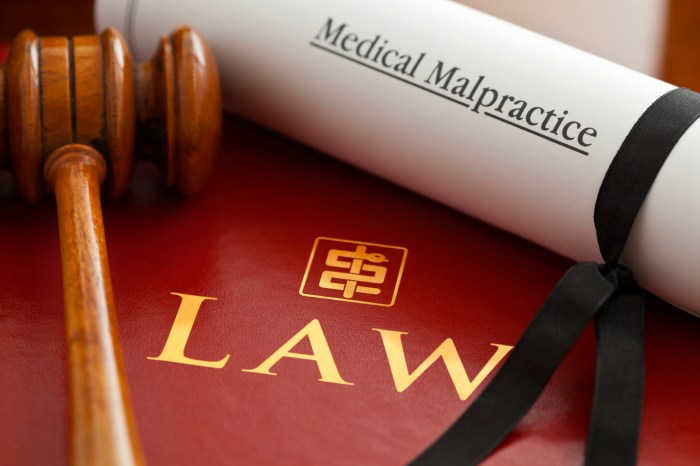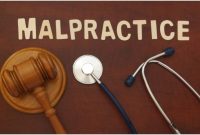The realm of medical malpractice is a complex and often daunting one. When faced with a potential case, navigating the legal landscape can be overwhelming. However, with the guidance of an experienced lawyer, individuals can navigate these complexities effectively, ensuring their rights are protected and maximizing their chances of a favorable outcome.
Throughout this guide, we will delve into the intricacies of medical malpractice laws, exploring the role of a lawyer in such cases and providing practical advice on gathering evidence, negotiating settlements, and pursuing legal action when necessary. By understanding these complexities and arming yourself with the right legal representation, you can confidently navigate this challenging terrain and seek justice for the harm you have suffered.
Understanding Medical Malpractice Laws

Medical malpractice laws aim to protect patients from harm caused by negligent or careless medical professionals. These laws define the legal obligations of healthcare providers and establish the grounds for legal action when those obligations are breached.
To establish a medical malpractice claim, several elements must be proven:
- Duty of care: The healthcare provider must have owed the patient a duty of care.
- Breach of duty: The healthcare provider must have breached their duty of care by failing to meet the accepted standards of medical practice.
- Causation: The breach of duty must have directly caused the patient’s injuries or damages.
- Damages: The patient must have suffered compensable damages as a result of the healthcare provider’s negligence.
Types of Medical Malpractice Cases
Medical malpractice cases can arise from various situations, including:
- Diagnostic errors: Incorrect or delayed diagnosis can lead to improper treatment and adverse outcomes.
- Surgical errors: Mistakes during surgery can result in injuries or complications.
- Medication errors: Prescribing the wrong medication, incorrect dosage, or administering medications to the wrong patient.
- Birth injuries: Negligence during childbirth can cause injuries to the mother or baby.
- Anesthesia errors: Improper administration of anesthesia can lead to complications or even death.
The Role of a Lawyer in Medical Malpractice Cases

Hiring a lawyer for medical malpractice cases is crucial due to the complexities of the legal system and the need for specialized knowledge in medical matters. Lawyers play a vital role in investigating the case, negotiating settlements, and representing clients in court.
Investigating the Case
Lawyers gather evidence, review medical records, consult with medical experts, and interview witnesses to determine the facts of the case. They assess the extent of injuries, liability, and damages.
Negotiating a Settlement
Lawyers negotiate with insurance companies or the opposing party to reach a settlement that compensates the client for their losses. They advocate for the client’s interests, ensuring a fair and reasonable outcome.
Representing in Court
If a settlement cannot be reached, lawyers represent clients in court. They present evidence, examine witnesses, and argue the case before a judge or jury. They strive to prove the negligence of the healthcare provider and secure compensation for the client.
Gathering Evidence and Building a Strong Case

In medical malpractice cases, gathering evidence is crucial to building a strong case. It helps establish the facts of the case, prove the negligence of the medical professional, and determine the extent of the damages suffered by the victim.
Types of Evidence
- Medical records: These include the patient’s medical history, test results, doctor’s notes, and any other documentation related to the medical treatment.
- Expert testimony: Medical experts can provide opinions on the standard of care, whether it was breached, and the extent of the victim’s injuries.
- Witness statements: Statements from witnesses, such as family members, nurses, or other medical professionals, can provide valuable insights into the events surrounding the medical incident.
- Physical evidence: This includes items such as medical devices, medications, or clothing that may have been involved in the incident.
Organizing and Presenting Evidence
Once evidence is gathered, it must be organized and presented effectively to the court. This involves:
- Chronological organization: Arranging the evidence in the order in which the events occurred.
- Categorization: Grouping similar pieces of evidence together.
- Presentation: Using clear and concise language, visuals, and demonstrative exhibits to present the evidence to the jury.
Negotiating a Settlement or Going to Court

When medical malpractice cases cannot be resolved through informal discussions, the next step is to either negotiate a settlement or proceed to court. Both options have their own advantages and disadvantages.
Negotiating a Settlement
Advantages:
Faster resolution
Settlements can be reached more quickly than going to court, saving time and resources.
Lower costs
Negotiation often involves lower legal fees and expenses compared to a trial.
Confidentiality
Settlements are typically confidential, protecting the privacy of the parties involved. Disadvantages:
Lower compensation
Settlements usually result in lower compensation than a verdict in court.
Limited control
The terms of the settlement are determined by both parties, which may not always align with the plaintiff’s desired outcome.
Going to Court
Advantages:
Higher compensation
Court verdicts have the potential to award higher damages than settlements.
More control
The plaintiff has more control over the outcome of the case and can seek a jury verdict that fully compensates them.
Precedence
Court rulings can establish legal precedents that benefit future medical malpractice victims. Disadvantages:
Longer and more expensive
Trials can be lengthy and costly, involving extensive discovery, witness testimony, and expert evidence.
Uncertainty
The outcome of a trial is uncertain, and the plaintiff may not receive the desired compensation.
Publicity
Trials are public proceedings, which may result in negative publicity for the parties involved.
Maximizing Compensation and Protecting Your Rights

In medical malpractice cases, compensation is awarded to victims for the harm they have suffered. The types of compensation may include:
- Economic damages: These compensate for financial losses, such as medical expenses, lost wages, and loss of earning capacity.
- Non-economic damages: These compensate for non-financial losses, such as pain and suffering, emotional distress, and loss of enjoyment of life.
- Punitive damages: These are awarded to punish the defendant for particularly egregious conduct.
The amount of compensation awarded varies depending on the severity of the injuries, the degree of negligence, and the jurisdiction.To protect your rights, it is crucial to:
- Document your injuries and expenses thoroughly.
- Seek legal advice promptly.
- Be honest and cooperative with your attorney.
- Understand the legal process and your options.
- Be prepared to negotiate or go to court if necessary.
By following these steps, you can maximize your compensation and protect your rights throughout the legal process.
Closing Summary

Navigating the complexities of medical malpractice laws requires a multifaceted approach that combines legal expertise with a deep understanding of the medical field. By partnering with a skilled lawyer, individuals can empower themselves to navigate this complex legal landscape, ensuring that their rights are protected and their pursuit of justice is effectively realized.
FAQ
What are the common types of medical malpractice cases?
Medical malpractice cases can encompass a wide range of situations, including surgical errors, misdiagnosis, medication errors, and birth injuries, among others.
What is the role of a lawyer in a medical malpractice case?
A lawyer plays a crucial role in investigating the case, gathering evidence, negotiating settlements, and representing clients in court, ensuring their rights are protected throughout the legal process.
How can I gather evidence to support my medical malpractice claim?
Gathering evidence is essential in medical malpractice cases. This may include medical records, witness statements, expert opinions, and any other documentation that supports your claim.
What are the advantages and disadvantages of settling a medical malpractice case?
Settling a medical malpractice case can offer advantages such as a faster resolution and reduced legal costs. However, it may also result in a lower settlement amount compared to pursuing a case in court.
How can I protect my rights throughout the legal process?
To protect your rights, it is important to document all communications, keep a record of expenses related to your injury, and seek legal advice promptly to ensure your interests are represented.



